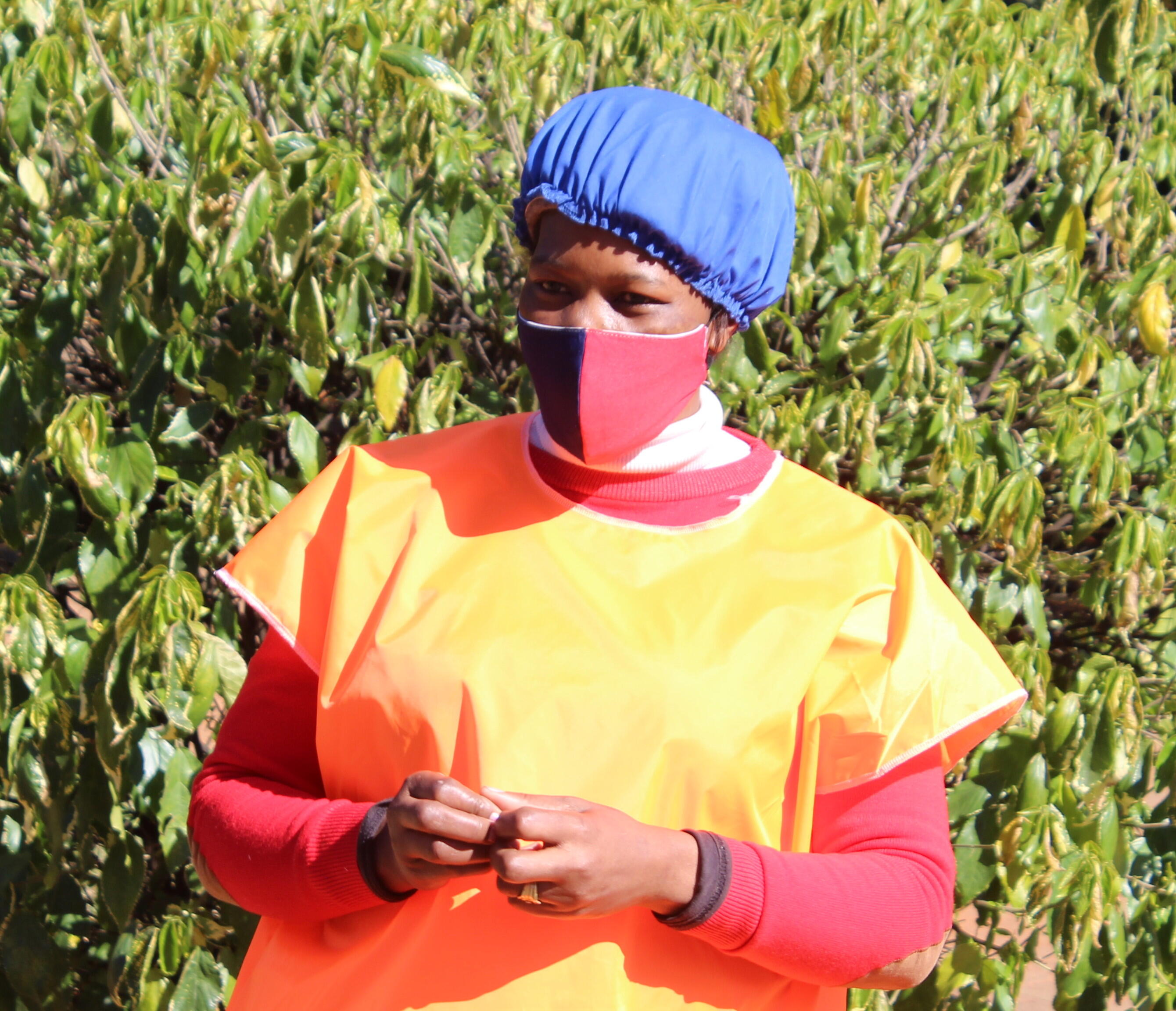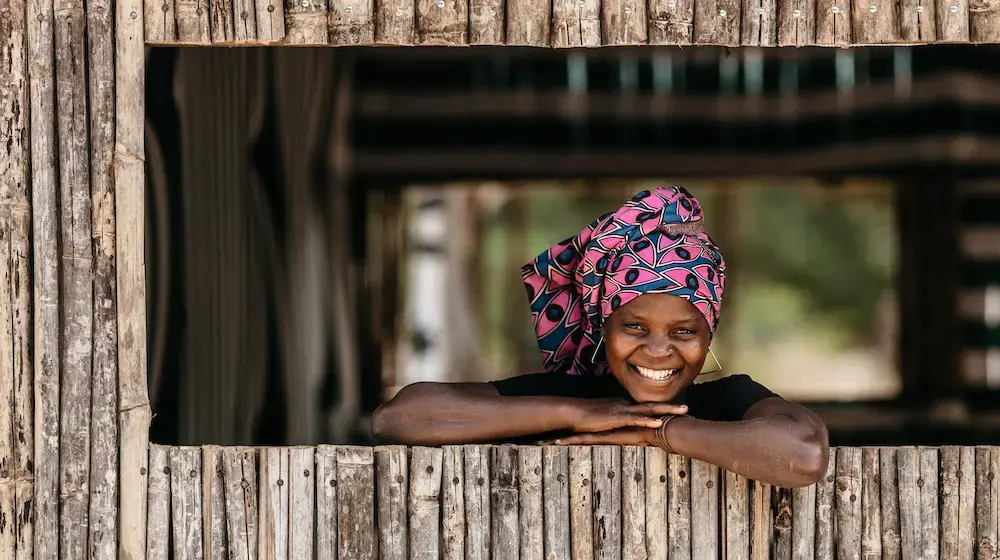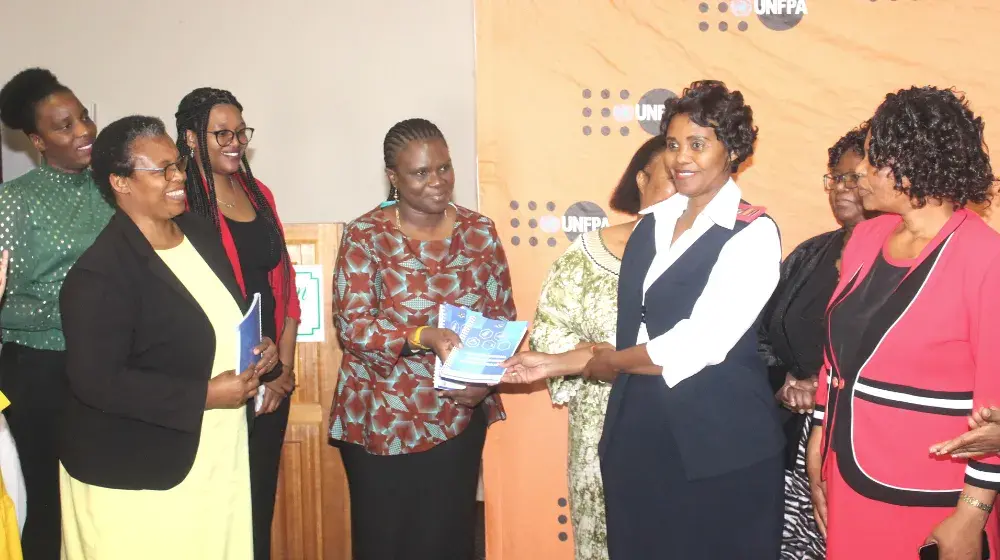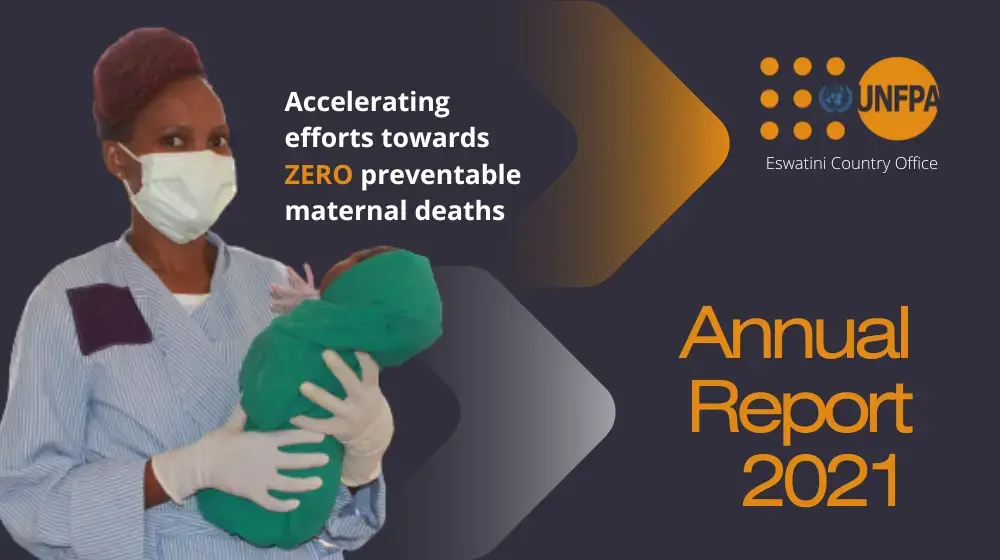When UNFPA brought a mobile clinic at Far East Textiles in Matsapha, 42 year old Tsakasile Bhembe said she could not miss the opportunity to get free health services.
“This is a rare occurrence,” she said joyfully. “Getting all the health services and information we need as women within the work place and during working hours. That’s very good for us. We are grateful.”
Tsakasile, the mother a 7 year old girl, her needs go beyond receiving services from the mobile clinic. She also requires sexual and reproductive health information to pass on to her daughter. She described the information sessions as eye opening.
“I understand the importance of family planning now,” Bhembe said. “As a woman, you need to have the number of children that you wish to have. Not less and not more. Else their quality life might be compromised. The important thing is to be able to provide for the material and emotional needs of your children.”
During the service provision day, Tsakasile spoke on behalf of the 600 women employed by Far East Textiles extending their excitement to have a clinic in their yard. The activity took place on the 15th, 16th, 17th and 24th of July 2020 with about 150 women able to access services.
The young women accessed diverse services in the integrated sexual reproductive health package at their disposal. These include family planning commodities, HIV testing services, STI screening, breast cancer screening, antenatal care, gender based violence information and counseling, as well as civil rights registration information.
This was a collaborative effort of UN agencies UNFPA, UNICEF and the Ministry of Health and civil society organisations: Family Life Association of Eswatini (FLAS), Swaziland Action Group Against abuse (SWAGAA) and Women and the Law in Southern Africa (WLSA). UNFPA conceived this initiative together with UNICEF and WLSA following an invite by Manzini regional MP, Honorable Busisiwe Mavimbela to a meeting with Tokky Hou, the Far East Director.
“We needed to ensure that women continued accessing essential health services, especially SRH services during this current lockdown, that’s why we brought this integrated package of services to these young women,” narrated UNFPA’s Margaret Thwala-Tembe.
“The current covid-19 pandemic, challenges us to be innovative around ensuring continuity of service uptake by women. For that reason, we had to dig deep to see how we can support such an activity which contributes towards the 3 transformative goals for UNFPA,” the Head of Office explained.
Far East Textiles Director Tokky Hou stated that continued access to essential health services by the women was crucial as the women were valuable to the company.
“The health of these women, who are the backbone of our business, is a priority,” said the Director.
“Taking care of them translates to sustaining the country’s economy.”
Director of Sexual and Reproductive Health Unit at the Ministry of Health, Bonisile Nhlabatsi urged the women to prioritise their health.
“The scope of sexual and reproductive health goes beyond clinical services,” explained Nhlabatsi. “Women need sessions like this, where they discuss their children’s behaviour and how they can help those children in different stages of growth.”
Eswatini, with an unmet need for family planning of 15 percent, faces a potential boom in births following declines in access to sexual and reproductive health services in the lockdown period. Hence the onsite services are aimed at mitigating such anticipated and unforeseen consequences of COVID-19.





